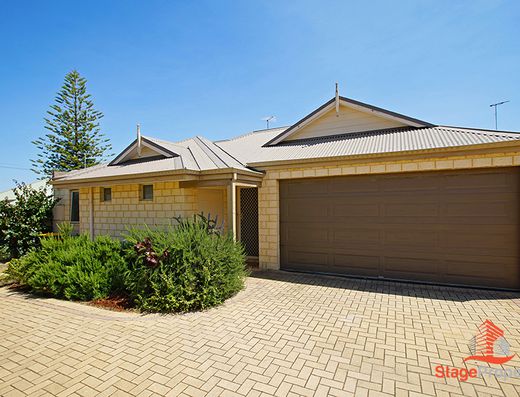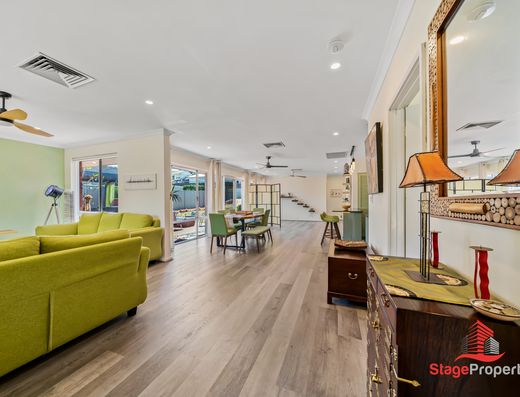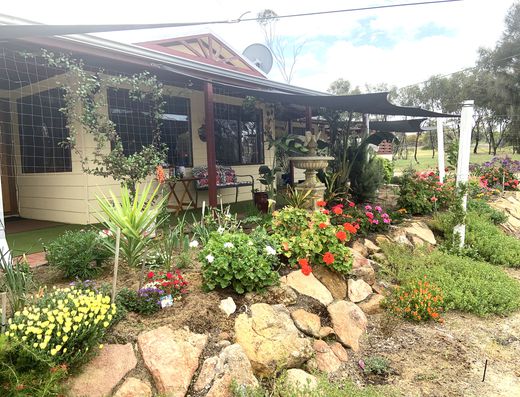National Rental Affordability Scheme – Frequently asked questions
About the Scheme
What is the National Rental Affordability Scheme?
The National Rental Affordability Scheme (NRAS) is a long term commitment by the Australian Government to investors prepared to build affordable rental housing.
NRAS seeks to address the shortage of affordable rental housing by offering tax-free financial incentives to the business sector and community organisations to build and rent dwellings to low and moderate income households at below-market rates for 10 years. It aims to:
- increase the supply of new affordable rental housing;
- reduce rental costs for low to moderate income households; and
- encourage large-scale investment and innovative management of affordable housing.
How does NRAS work?
NRAS provides a substantial annual tax-free incentive, called the NRASIncentive, to the business sector and community organisations who build and rent dwellings to low and moderate income households at a rate that is a least 20 per cent below the prevailing market rate.
Current Incentive
The annual income-tax free Incentive is currently $9,981 per dwelling, and is indexed each year to the rental component of the CPI.
The Incentive comprises:
- an Australian Government contribution of $7,486 per dwelling per year (paid as a refundable tax offset or payment); and
- a State or Territory Government contribution of $2,495 per dwelling per year (in direct or in-kind financial support).
Who benefits from the Scheme?
NRAS aims to provide affordable rental housing for low to moderate households. Eligible individuals and families are able to rent NRAS dwellings at a discounted rate, making their rental housing more affordable.
NRAS is intended as a tax-free commercial investment option for participants while also increasing the supply of affordable housing in Australia. Investors in the Scheme may benefit from enhanced cash returns, annual rental incentive and reduced vacancy rates over the 10 year life of NRAS.
Who is eligible to participate in NRAS?
Potential participants in NRAS include financial institutions, investors, private developers, not-for-profit organisations and community housing providers who may build, own, finance or manage NRAS dwellings.
Who can rent an NRAS dwelling?
Income levels for eligible NRAS tenants accommodate a range of low and moderate incomes.
To allow for income increases above CPI, income increases of up to 25 per cent above the initial income limit thresholds for two years after entering an NRAS dwelling are allowed before becoming ineligible for the discounted rent.
Who manages the Scheme?
The former Department of Families, Housing, Community Services and Indigenous Affairs (FaHCSIA) is responsible for the ongoing management of NRAS, in consultation with the Australian Taxation Office.
The Australian Government is working closely with State and Territory Governments, investors, financial institutions, property developers and not-for-profit housing providers to ensure the objectives of the Scheme are achieved.
Where can I get more information about the potential financial benefits of investing in NRAS?
The Australian Government has developed an Information for Investors publication specifically designed to provide potential investors with information about the Scheme and how NRAS can become part of an investment portfolio.
Investment benefits
Why invest in an NRAS property?
The National Rental Affordability Scheme (NRAS) is a private investment scheme targeted at large-scale investors seeking improved returns on their direct property investment.
NRAS provides a substantial annual tax-free incentive per dwelling to investors who build and rent approved dwellings at a rate that is a least 20 per cent below the prevailing market rate, to low and moderate income households.
Approved NRAS investors will be eligible for tax-free incentives not available to conventional, individual residential property investors, with each approved dwelling attracting an annual NRAS Incentive for up to 10 years.
What is the annual NRAS Incentive?
The annual NRAS Incentive is income tax-free, indexed annually to the rental component of the Consumer Price Index (CPI) and is complemented by existing taxation arrangements including depreciation. The Incentive currently comprises:
- an Australian Government contribution of $7,486 per dwelling per year as a refundable tax offset (not-for-profit organisations endorsed as charities by the Australian Taxation Office can choose to receive the contribution as a refundable tax offset or a direct payment)
- a State or Territory Government contribution of $2,295 per dwelling per year in direct or in-kind financial support
What are the commercial benefits of investing in an NRAS property?
NRAS creates a new residential property asset class for property investors and presents a new investment opportunity in the Australian market. It is intended as a commercial investment option for participants while also increasing the supply of affordable rental housing in Australia.
Investors in the Scheme can expect to benefit from the annual tax-free NRAS Incentive for up to 10 years, rental yields and capital gains.
How do returns on an NRAS investment dwelling compare with a conventional residential investment property?
Under NRAS, investors receive a tax free incentive of $9,981 per annum (indexed annually) for up to 10 years for each approved dwelling rented at a rate that is a least 20 per cent below the prevailing market rate.
Compared with a conventional residential investment property, in certain markets, the addition of the tax-free Incentive can provide a better return to the investor than charging market rent. In addition, investors could apply property expenses and non-cash deductions and allowances against a lower (80 per cent of market) assessable rental income which could amplify the negative gearing benefit.
Can small-scale or private individual investors participate in the Scheme?
As NRAS aims to encourage large-scale investment in affordable housing, it is not directly available to small-scale, private, individual investors in the rental property market. These investors could become involved by investing in entities that participate directly in the Scheme, for example, through a superannuation fund or property trust or through purchasing individual properties from an NRAS Participant.
The Government is committed to ensuring that the full value of the NRAS Incentive is passed to all investors.
Arrangements between dwelling owners and approved participants are a matter for those parties and cannot be facilitated or prescribed by the Australian Government. Investors should undertake their own investigations and seek independent investment advice to ensure they are satisfied that investing in NRAS is the right investment for their individual circumstances.
What are the characteristics of an NRAS dwelling?
The design and quality of NRAS dwellings compare favourably with any other private market non-NRAS dwelling. Typically, they are indistinguishable from other ‘middle-market’ dwellings. Rigorous selection criteria are applied to the location, design and amenity of NRAS dwellings. All dwellings must also comply with State, Territory and Local Government planning and building codes and requirements.
Who can rent an NRAS dwelling?
NRAS aims to provide affordable rental housing for the nation’s critical infrastructure workforce as well as other low to moderate income earners.
What are the income levels for NRAS tenants?
Income levels for eligible NRAS tenants accommodate a range of low and moderate incomes.
To allow for income increases above CPI, income increases of up to 25 per cent above the initial income limit thresholds for two years after entering an NRAS dwelling are allowed before becoming ineligible for the discounted rent.
Can I sell my NRAS property or remove it from the Scheme and rent it at market rates?
Investors no longer wanting to participate in the Scheme can sell their dwelling or cease their participation prior to completion of the 10 year NRAS term without incurring any early exit penalties:
- a dwelling can be sold to another investor who undertakes to comply with NRAS obligations
- an equivalent dwelling can be offered as a substitute dwelling for the remaining part of the 10-year period
At the end of the 10 year NRAS period, properties revert to full control and ownership of the investor.
Where can I get more information about the potential financial benefits of investing in NRAS?
The Australian Government has developed an Information for Investors publication specifically designed to provide potential investors with information about the Scheme and how NRAS can become part of an investment portfolio.
Tenancy managers
Who can be a tenancy manager of an NRAS dwelling?
Tenancy managers for National Rental Affordability Scheme (NRAS) dwellings may be a:
- not-for-profit organisation (such as a community housing provider);
- commercial business (such as a private real estate agent);
- Local Government; or
- State or Territory Government on a fee-for-service basis only where there are no suitable alternatives.
Approved participants may contract a service provider to manage dwellings on their behalf or the tenancy manager could form part of the consortium which makes the NRAS application.
What is the tenancy manager’s role?
NRAS tenancy managers are required to:
- assess tenant eligibility and retain tenant records;
- manage determination of market rents and the below-market rents charged to tenants of approved NRAS dwellings;
- provide property management and maintenance functions;
- manage the ongoing tenancy of an NRAS dwelling;
- report compliance with tenant eligibility, rent levels and other regulatory requirements under the Scheme to approved participants; and
- retain tenancy compliance records for at least five years.
NRAS requires that tenancy management services comply with the residential tenancy legislation and relevant tenancy and property management regulations in the State or Territory in which the dwelling is located.
In some jurisdictions, tenancy managers may need to hold a real-estate licence. Your State or Territory Government housing agency can provide details of any local requirements.
Approved participants should note that failure by a tenancy manager to comply with the requirements of the Scheme may impact on your right to receive the National Rental Incentive, and may result in an allocation being revoked if the conditions of your allocation are not complied with.
Can an approved participant manage the NRAS property themselves?
Approved participants may undertake the tenancy manager role where they have the appropriate skills and qualifications.
Who is responsible for checking tenants’ incomes?
The tenancy manager is responsible for ensuring that tenants meet the Scheme’s eligibility criteria on an ongoing basis.
How does the tenancy manager check tenants’ incomes?
Tenancy managers should take reasonable steps to accurately determine the household income of NRAS tenants. Documents that may assist in determining household income include:
- copies of payslips;
- notices of assessment for annual income tax returns;
- letters from employers;
- statements from superannuation funds;
- statements from Centrelink; and/or
- statements of dividends or rents paid.
Copies of any documents should be held on file, as the former Department of Families, Housing, Community Services and Indigenous Affairs (FaHCSIA) may audit NRAS dwellings to ensure that the requirements of the Scheme are being met.
How are tenants selected for NRAS dwellings?
Tenancy managers select tenants and maintain waiting lists for NRAS homes. Prospective tenants need to contact the property’s tenancy manager to register their interest in renting an NRAS dwelling.
Assessment and selection of tenants is at the discretion of the tenancy management organisation. As long as NRAS eligibility requirements are met, tenancy decisions will be made in line with their usual policies and processes.
Queensland tenants are selected from the Queensland Government’s One Social Housing Register.
What protections are in place for tenancy managers?
NRAS requires that tenancy management services operate under the residential tenancy legislation and relevant tenancy and property management regulations in the State or Territory in which the dwelling is located.
Eligibility
The Scheme seeks to address the shortage of affordable rental housing by offering annual tax-free incentives to the business sector and community organisations to build and rent affordable dwellings to low and moderate income households at below-market rates for up to 10 years.
What is an eligible NRAS dwelling?
NRAS dwellings must meet certain criteria:
- The dwelling must be brand new – that is, it must not have been previously tenanted in its current condition.
- The dwelling must be rented at a rate that is at least 20 per cent below the prevailing market rate.
- An NRAS dwelling must be self contained. It must be demonstrated that a tenant, or tenants, would be able to live independently within the dwelling and not need to access external or common facilities.
- The dwelling must provide the following facilities:
-
- a bathroom and kitchen;
- a bedroom and living space (the bedroom and living space may be combined within a single large room, as in the case of studio apartments); and
- a separate lockable entrance which can be accessed either externally or via an internal hallway or common entrance. The entrance cannot be accessible only via entry to another dwelling.
- A dwelling which does not provide private facilities cannot be considered a rental dwelling or a subsidiary dwelling under the Scheme and will not be eligible for the National Rental Incentive.
- An eligible dwelling does not include a caravan, houseboat or other kind of mobile dwelling.
- The tenants of eligible dwellings must meet the income requirements prescribed by the Scheme.
How is market rent determined for an eligible dwelling?
In years one, four and seven of the Scheme participants are required to seek a written valuation from a registered valuer to determine the market rent for the dwelling.
In the other years, participants may review the rent based on information about the location, type and amenity of the approved dwelling and supported by publicly available data about comparative rental rates.
What is the typical length of a lease?
Where appropriate, participants are encouraged to provide longer leases to improve security of tenure for tenants. Longer leases may also benefit owners and managers by reducing vacancy rates and minimising costs associated with the end of leases and re-tenanting.
Approved participants are not required to provide longer term leases or other rights for tenants beyond those which are required by relevant landlord and tenant legislation. NRAS does not provide tenants with any special rights over and above the relevant residential tenancy legislation in the State or Territory where the dwelling is located.
Who is eligible to rent an NRAS dwelling?
NRAS aims to provide affordable rental housing for low to moderate income earners including key and essential service workers, such as childcare workers, nurses, police officers, fire-fighters and paramedics.
How are tenants selected for NRAS dwellings?
Tenants for NRAS properties are selected by investors and their tenancy managers, except in Queensland. Queensland tenants are selected from the Queensland Government’s One Social Housing Register.
Tenancy managers select tenants and maintain waiting lists for NRAS homes with assessment and selection of tenants being at the discretion of the tenancy management organisation. As long as NRAS eligibility requirements are met, tenancy decisions will be made in line with their usual policies and processes.
Can tenants be evicted?
Tenancy management organisations under the Scheme must comply with the residential tenancy legislation and relevant tenancy and property management regulations in the State or Territory in which the dwelling is located. Any eviction must be in accordance with the residential tenancy legislation and regulations.








